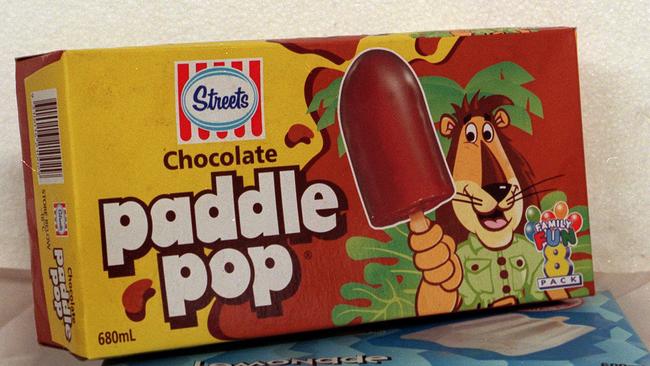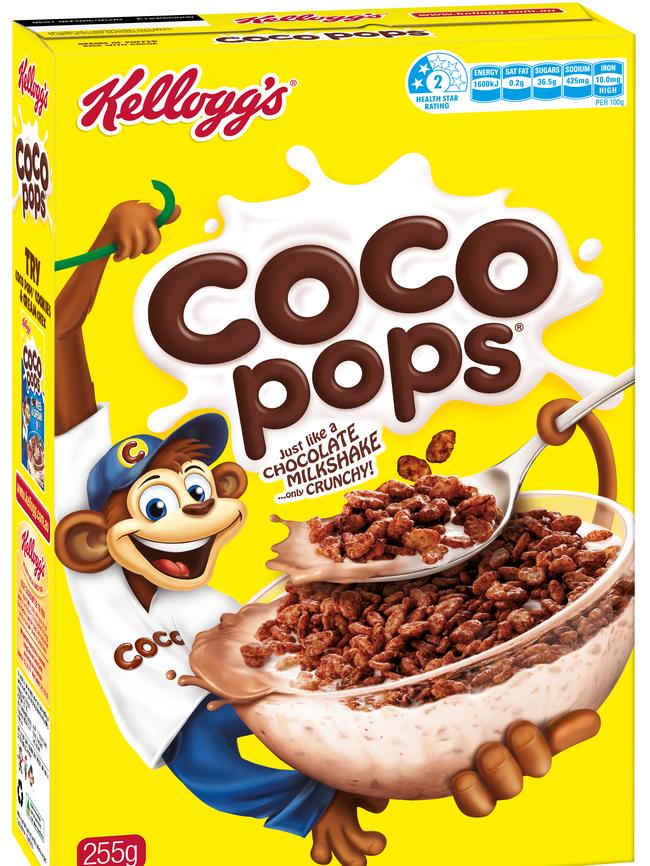Cartoon characters should be banned from food packaging, says obesity expert
CARTOON characters such as the Paddle Pop lion and the Coco Pops monkey should be banned from packaging because they encourage children to eat unhealthy foods, an obesity expert says.
VIC News
Don't miss out on the headlines from VIC News. Followed categories will be added to My News.
CARTOON characters such as the Paddle Pop lion and the Coco Pops monkey should be banned from packaging because they encourage children to eat unhealthy foods, an obesity expert says.
Associate Professor Gary Sacks, of Deakin University, said tighter marketing restrictions were needed to reduce the appeal of ice creams, chips, chocolates and sugary cereals to children and teens.
BABIES FROM POOR FAMILIES HAVE MUCH HIGHER RISK OF OBESITY
DAD CALLS FOR DEATH TO NUGGETS IN OBESITY FIGHT
“Images such as the Paddle Pop lion, Coco the monkey, the Nesquik bunny and M&M’s characters are attractive to youngsters,” he said.
And only healthy brands should be spruiked during family-friendly sporting events, he suggested. “Promises are made to not directly target children ... but self-regulation is full of loopholes,” he said.

“It doesn’t prevent unhealthy food advertising in prime time, unsuitable images on packaging, or sponsorship at major sporting events.
“Recently, Zooper Dooper icy poles were promoted on grounds for AFLX games.”
Australian Food and Grocery Council deputy CEO Dr Geoffrey Annison said the World Health Organisation had assessed Australia as having “fully achieved its commitments to marketing restrictions to children”.
A Deakin University study of 19 major food and drink makers’ disclosed obesity prevention and nutrition policies and commitments, released today, awards only half of them a pass mark. The report urges more widespread:
HEALTH star rating labels;
TARGETS to cut salt, added sugar and “bad” fats; and
LIMITS on claims such as “99 per cent fat-free” to just healthy products, and support for “added sugar” labels.

DUMP LOLLIES FROM SUPERMARKET CHECK-OUTS
HOW MUCH SUGAR IS IN YOUR SLURPEE
“Less healthy” food marketing should be restricted at “all times/events when a large number of children/adolescents are likely to be exposed”.
The report scored Lion Dairy & Drinks, maker of Zooper Dooper, highest overall at 71 out of 100. The lowest rank, Parmalat’s 3 out of 100, was based on publicly available information only.
Unilever Australia said it was a responsible marketer.
The “much-loved” Paddle Pop lion was associated with a specially formulated, reduced-fat “permissible” treat option.
Kellogg’s Australia’s Derek Lau said its marketing targeted parents. Coco the Monkey only appeared on packaging in supermarkets, where parents were the shoppers, he said.


